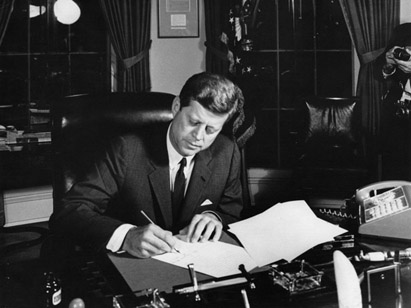This module is for Grades: 9-10 Welcome
Have you ever heard the old adage, “There are two sides to every story”? The saying is usually applied to conflict situations, such as when two friends are arguing. This same adage can also apply to countries in conflict. Like two friends arguing, citizens and leaders of countries have their own perspectives and points of view about events and causes of conflicts.
After World War II, the United States and the Soviet Union entered into a period known as the Cold War. The two nations never entered into direct conflict with one another; rather it was a time period in which each nation sought to expand its sphere of influence and limit the expansion of the other’s power. In October 1962, a 13-day confrontation took place between the United States and the Soviet Union over Soviet surface-to-air missiles deployed in Cuba, which were capable of reaching the United States. This confrontation became known as the Cuban Missile Crisis.
In this module, you will examine the different points of view of the political leaders involved in the Cuban Missile Crisis. You will read letters written by Cuban leader Fidel Castro, Soviet leader Nikita Khrushchev and U.S. President John F. Kennedy as they attempted to deal with the crisis. The name each country has for this two-week period reflects their different perspectives on the events. In Cuba it is known as the Crisis de octubre [October Crisis]; in Russia it is the Karibskiy krizis [Caribbean Crisis]; and in the United States, we refer to it as the Cuban Missile Crisis. All three countries refer to it as a crisis because this was the closest the Cold War came to escalating into a full-scale nuclear war.
Module Objectives
By the end of this module, you will be able to:
- Identify, explain, and analyze texts in order to compare two authors' points of view on the same topic.
- Place each source in its historical context by examining features such as the title, creator, date, origin and purpose of the information, and analyze how the historical context affects point of view.

During the Cuban Missile Crisis in 1962, President Kennedy exchanged a series of letters with Soviet leader Nikita Khrushchev.
Image credit: Abbie Rowe. White House Photographs. John F. Kennedy Presidential Library and Museum, Boston
Focus Standard
RH.9-10.6 - Compare the point of view of two or more authors for how they treat the same or similar topics, including which details they include and emphasize in their respective accounts.
Skill(s)
- Author's purpose or point of view








